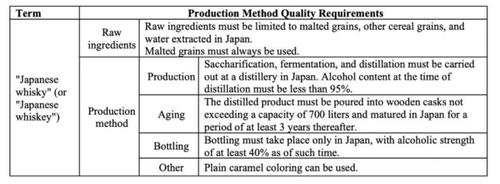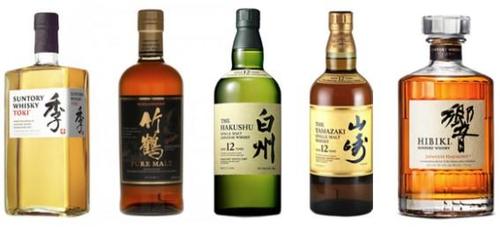New Regulations Mean Japanese Whiskey Now Actually Has To Come From Japan
Nothing is more popular in the world of trendy alcohol right now than Japanese whisky.
And the funny thing is that while normal whisky is usually revered for where it is casked and prepared – with local climates and soils often playing a role in helping shape the unique tastes that come with it – Japanese whiskey doesn’t even have to be made in Japan, as long as it is bottled in the country.
Stefan van Eycken, author of Whisky Rising: The Definitive Guide to the Finest Whiskies and Distillers of Japan, told Bloomberg: “To say that whisky-making regulations in Japan are loose is a major understatement. If they were any looser, you’d be able to sell tap water as Japanese whisky.”
But this is all about to change. The Japan Spirits & Liqueurs Makers Association (JSLMA), a nongovernmental trade group of the country’s major producers is about to make sure consumers have a clear understanding of what Japanese whisky is – and, of course, it will mean whiskey actually produced in Japan.
The new regulations, which take effect on April 1 and are expected to be adopted widely by the Japanese government, is already making shockwaves. Whiskey maker Nikka came right out already and said: “Certain Nikka products don’t meet the requirements of ‘Japanese whisky,’ as some blends contain whiskies from outside Japan, most notably Scotland. Nikka’s priority is creating distinguished and consistent taste profiles, which is likely why they’re deciding not to alter the liquid to fit the new standards.”
Nikka has been popular in Japanese bars for nearly 40 years. It just arrived in the U.S. in 2018 and was almost immediately named the year’s best whisky by Whisky Advocate.
For some, the news that Nikka whisky didn’t all come from Japan was surprising. Shawn Kim, owner of 58 Wines in Midtown Manhattan, told Bloomberg: “I had no idea it contained whisky from outside of Japan. I was able to get 10 cases at a time before it got popular. I hate whenever something I love is named ‘whisky of the year,’ because then people start treating it like a trophy, and they stop actually drinking it.”
Nikka’s experience with coming to the U.S. has matched that of many other Japanese whiskies. Products from Suntory has been praised for its single malts and blends.
Hideki Kanda, chairman of the JSLMA, said that all major brands sold in the U.S. conform to the new standards. If they don’t they will have to remove the word “Japanese” from their label and will also have to “excise all references to the country, its culture, and language”. For example, a bottle won’t be able to have a photo of a Japanese flag on it.
In Japan, there isn’t a ton of grain distilleries, making it sometimes easier to import whisky.
Eli Raffeld, who used to live in Japan before making back to the U.S. to start an importer-exporter for craft beer, said: “In Japan, nobody is really misled by any of this. It’s common practice in Japan, he says, to be bottling and selling whiskies that include a component imported from another country, almost to the point of tradition. So people don’t really think about it.”
Emiko Kaji, international business development manager for Nikka, concluded: “We do not make superior or inferior distinctions of flavor based on geographical indications. If using imported whiskies as a part of the formula is beneficial to create or maintain the flavors of our unique expressions, we will continue this practice.”
Tyler Durden
Sat, 02/20/2021 – 19:00
via ZeroHedge News https://ift.tt/3k6CPCK Tyler Durden

